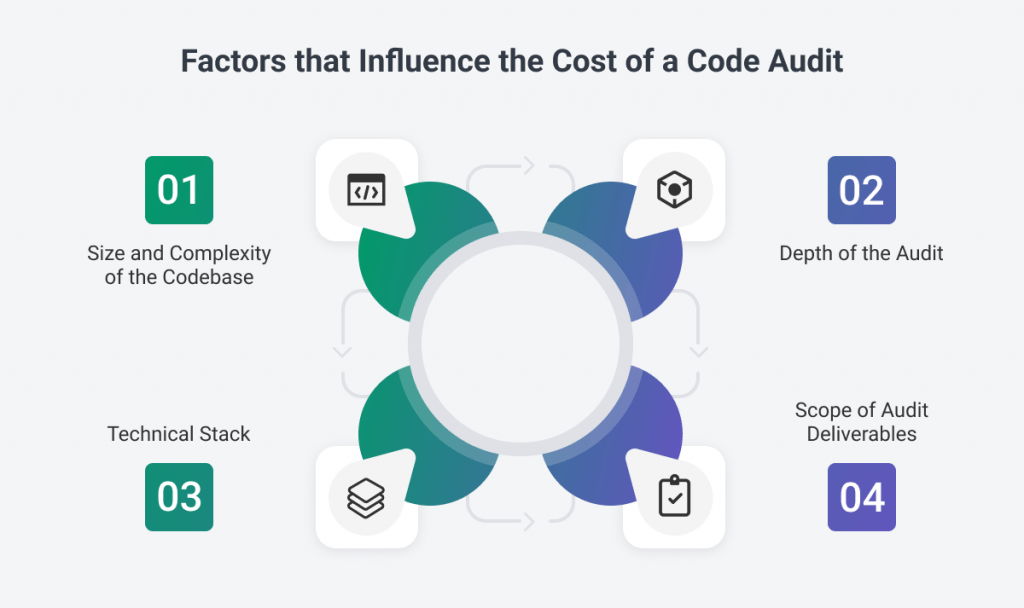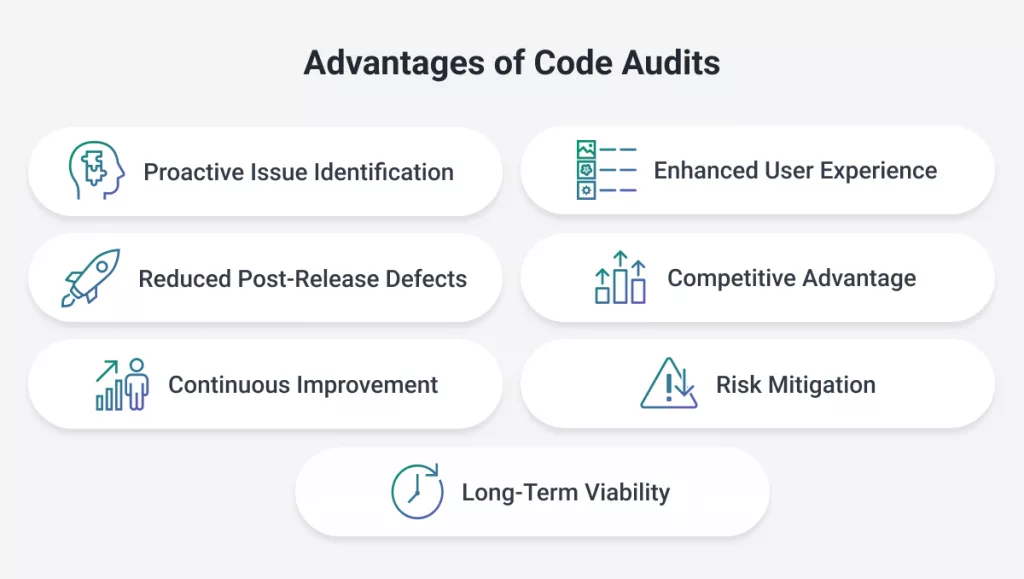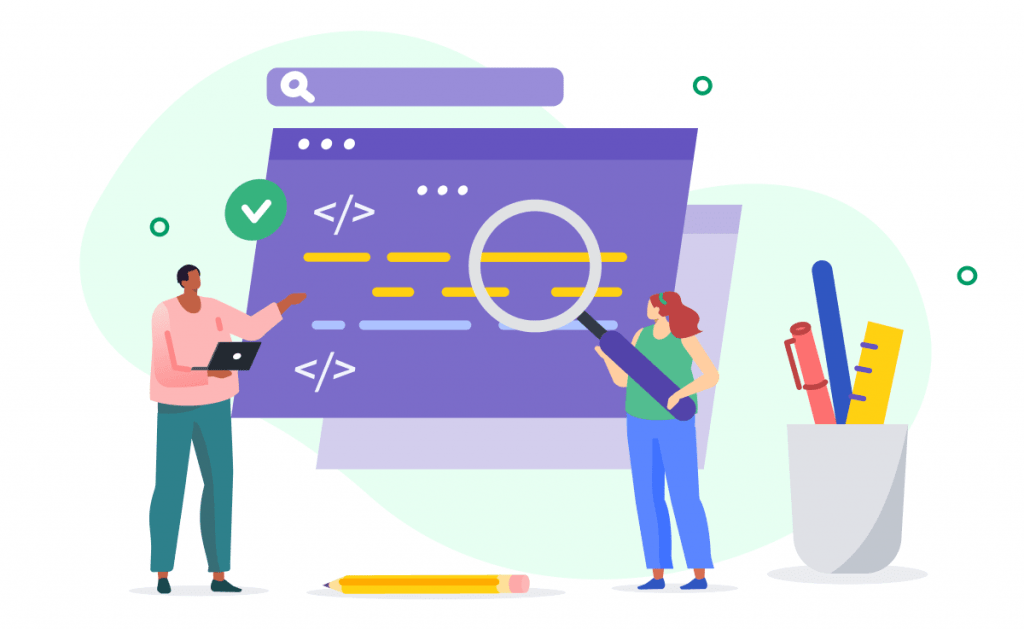In today’s fast-paced digital world, software development plays a crucial role in shaping businesses and industries.
With the increasing complexity of software code and the importance of maintaining code quality, code audits, and code reviews have become essential for ensuring the reliability and security of codebases.
In this article, we will explore the factors that determine the cost of a code audit or code review and delve into the best practices to optimize your budget for an effective code review.
Also have a look at How Low Code Applications Are Changing the Game?
What is a Code Audit and Why is it Important?
Understanding the Concept of a Code Audit
A code audit is a comprehensive examination of a software codebase to identify potential vulnerabilities, security risks, and areas for improvement. It involves reviewing the source code, analyzing its structure, and assessing its quality and maintainability.
Code audits are typically performed by experienced professionals to ensure that the code meets industry standards and best practices.
The Significance of Code Audits for Software Development
Code audits play a crucial role in the software development process as they help identify and address potential vulnerabilities and security risks.
By conducting code audits, development teams can improve the quality and reliability of their code, enhance the overall security of their products, and ensure compliance with industry regulations.
How Can a Source Code Audit Help Identify and Fix Vulnerabilities?
During a code audit, the expert reviewers carefully examine the codebase and search for any security vulnerabilities or weaknesses. A review can help identify coding errors, outdated libraries, and insecure coding practices that could potentially be exploited.
By identifying these vulnerabilities, source code reviews allow developers to fix the issues promptly, reducing the risk of security breaches and data breaches.
Also have a look at Healthcare Software Development Cost: Exact Price Tag
What Factors Determine the Cost of a Software Code Audit?
Understanding these factors can help you plan and allocate the appropriate budget for a code audit. It is important to balance the scope of the audit with your financial resources to ensure that you get the most value out of the audit while maintaining the long-term health of your software.

There are several factors that can impact code audit costs. These include:
Size and Complexity of the Source Code
The size and complexity of the source code have a significant impact on the cost of a code audit. Larger codebases with extensive functionality and intricate logic require more time and effort to review the code thoroughly.
The complexity of the codebase influences the expertise and resources required to conduct a comprehensive audit.
The Level of Code Quality and Maintainability
The quality and maintainability of the code also affect the cost of a source code audit. Well-structured, modular, and easily maintainable code is easier to review and analyze, resulting in a more efficient and cost-effective code audit process.
On the other hand, poorly written, convoluted code can be time-consuming and challenging to assess, increasing the cost of the audit.
Availability of Documentation
Is there sufficient documentation available for the codebase? Lack of proper documentation can make it more time-consuming and difficult for auditors to understand and perform a code audit, leading to increased costs.
Programming Languages and Technologies Used
The tech stack used for your existing software can impact the cost of a code audit. Some programming languages and technologies are more complex and require specialized knowledge to audit.
If your codebase includes such languages or technologies, it may require a higher level of expertise from the auditors, which can impact costs.
Scope of the Audit
The depth and thoroughness of the audit can vary. A superficial audit may be less costly but may not provide a comprehensive understanding of the code’s security, performance, or maintainability. A more in-depth audit can be more costly but will provide a more thorough analysis of the code.
The Expertise of the Auditors
The level of expertise and experience of the auditors can affect the cost of the audit. Highly skilled third-party auditors with specialized knowledge may charge a higher rate for their services.
Timeline and Urgency
An urgent or tight timeline for the software code audit may require auditors to allocate more resources and potentially work outside regular hours, resulting in higher costs.
Compliance Requirements
If you need to comply with specific industry standards or regulations, auditors may need to conduct a more comprehensive audit to ensure compliance. This can add to the overall cost of the audit.
Additional Services Provided by the Code Audit Service
Some code audit services provide additional services beyond the standard code audit process.
These may include in-depth security audits, QA Audits, dynamic code analysis of new features or an upgrade, architecture assessments, manual code reviews, source code analysis, and providing a detailed code audit report with actionable recommendations. The inclusion of such additional services can increase the overall cost of the code audit.

The Hidden Costs of Not Utilizing Source Code Audits Services
The decision to forgo code audits may appear to save time and money in the short term, but it comes at a substantial long-term cost. With tight project deadlines and constant pressure to deliver results, some organizations may consider skipping code audits to save time and resources.
However, the decision to forego these crucial quality assurance processes can come with a hefty price down the road.
Reduced Code Quality
One of the most apparent costs of not conducting code audits is the decline in code quality. Without regular inspections, code can accumulate technical debt, become cluttered, and deviate from established coding standards.
As a result, developers may find it increasingly challenging to maintain, update, or extend the software. This can lead to increased errors, bugs, and inefficiencies, ultimately affecting the overall quality of the product.
Increased Maintenance and Debugging Costs
Poorly audited code often translates to higher maintenance and debugging costs. Bugs and issues that go unnoticed during development can result in expensive troubleshooting later on.
Identifying and fixing these problems can be time-consuming and resource-intensive, eroding any initial savings gained by skipping code audits.
Missed Security Vulnerabilities
The security of software systems is a paramount concern for every business. Failing to conduct code audits can leave vulnerabilities undiscovered, making the software a prime target for cyberattacks.
The aftermath of a security breach can entail not only financial losses but also severe damage to an organization’s reputation and trustworthiness.

Project Delays and Missed Deadlines
While code audits might seem like time-consuming processes, they can help prevent major setbacks in the long run. Skipping audits might initially speed up development, but it often leads to unexpected delays down the road.
As code quality deteriorates and issues pile up, developers will struggle to meet project deadlines, causing delays that can be costly in terms of time, money, and resources.
Decreased Developer Productivity
Developers working with bad code can face a constant battle against confusing and inefficient code structures. This, in turn, reduces their productivity, as they spend more time deciphering code and addressing problems that could have been prevented with audits.
The opportunity cost of not conducting code audits affects the overall productivity and efficiency of the development team.
Difficult Knowledge Transfer and Onboarding
In the absence of code audits, it can be challenging for new team members to quickly get up to speed with the project. This not only slows down the onboarding process but also poses risks if critical knowledge about the software’s architecture and best practices is lost when team members leave the project.
Legal and Compliance Risks
Many industries and applications require adherence to specific regulations and standards. Skipping code audits may lead to non-compliance, putting organizations at risk of legal issues, fines, and reputational damage.
Also read: Beyond the UI: Exploring API-First Approaches to Automated Testing
Strategies for a Budget-Friendly Code Audit Process
Balancing your code audit’s scope with your budget constraints is essential. Here are strategies to optimize your code audit for financial efficiency:
Prioritization
Prioritize audit deliverables based on criticality. Address high-risk areas first to obtain immediate benefits while managing costs.
Regular Auditing
Consider frequent, smaller-scale audits rather than infrequent, comprehensive ones. This approach allows you to continuously manage costs and maintain code quality.
Expert Consultation
Consult code audit experts and outsource teams who can guide you toward the most cost-effective approach for your specific situation. Code Audit Services can provide valuable insights and help you avoid unnecessary expenses.

Automation
Utilize automated code analysis tools to identify basic issues and potential vulnerabilities. This can save time and resources compared to manual inspections.
Focused Scoping
Define clear objectives and limitations for the code audit. Focus on specific areas or modules that are critical or have a higher likelihood of having issues. This helps minimize unnecessary efforts and costs.
Open Source Audits
Leverage open-source tools and frameworks for conducting code audits. These tools are often cost-effective alternatives to proprietary solutions.
Collaboration
Engage developers and stakeholders in the code audit process. By involving the development team, you can tap into their expertise and reduce the need for external resources.
Incremental Improvements
Implement recommendations from previous code audits incrementally. Prioritize and tackle the most critical issues first and then address others gradually over time. This approach spreads out the financial impact and ensures continuous improvement without overwhelming the budget.
Training and Education
Invest in training and education for your development team to improve code quality and reduce the need for future audits. By enhancing their skills and knowledge, they can proactively identify and address potential issues, minimizing the need for extensive audits.
Continuous Integration and Testing
Implement a robust continuous integration and testing process. This helps in catching and fixing issues early on, reducing the need for extensive code audits. It also improves code quality and minimizes the risk of introducing new vulnerabilities.
Also have a look at: Best Practices for Writing Clean Java Code: Powerful Techniques for Unrivaled Efficiency!
Before You Perform a Code Audit
Understanding the factors that impact code audit costs is vital for effective budget planning. Striking the right balance between audit scope and financial resources ensures a successful code audit that enhances the long-term health of your software.










Leave a Reply